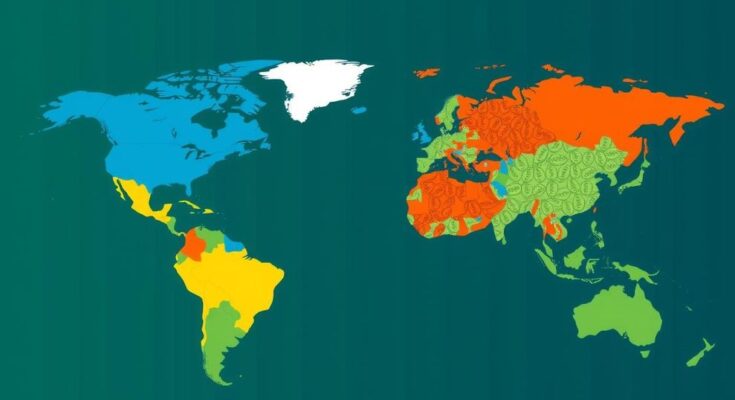At the COP29 conference in Baku, the EU has raised its financial offer to poorer nations affected by climate change to $300 billion annually, up from an initial $250 billion, amid stalled negotiations. This increased offer comes with conditions regarding fossil fuel phase-out commitments, and highlights the critical financial needs of developing nations, many of which demand at least $500 billion.
The European Union has increased its financial commitment to assist poorer nations affected by climate change to $300 billion annually, as negotiations at the COP29 conference in Baku, Azerbaijan, teetered on the brink of failure. Initially, developing countries rejected a proposed sum of $250 billion, prompting the EU to push for the higher amount. However, this proposal is contingent upon further discussions regarding measures to phase out fossil fuel usage, which has faced resistance, particularly from Saudi Arabia.
Negotiators have been working diligently amid heightened tensions, with Irish Climate Minister Eamon Ryan expressing optimism about reaching an agreement. He highlighted the critical importance of generating a successful outcome to inspire hope in multilateral climate action. Meanwhile, Ali Mohamed, chair of the African Group of Negotiators, emphasized the need for substantial financial support from wealthy nations, denoting the initial offer as inadequate and warning that stagnation could lead to a complete failure of the summit. With a draft deal proposing a cumulative target of $1.3 trillion, it remains uncertain how much direct governmental funding will be allocated compared to private sector contributions.
The ongoing discussions underscore the urgent financial needs of developing nations, particularly as many have called for at least $500 billion, arguing that inflation has diminished the value of recent offers. In the backdrop of the negotiations, opposition to climate funding has emerged from governments wary of commitments to foreign assistance, particularly following the recent election of President-elect Donald Trump in the United States, known for his skepticism towards climate initiatives.
The article addresses the critical negotiations occurring at COP29, an essential UN climate conference aimed at addressing the climate crisis and securing financial support for developing nations adversely affected by climate change. Several nations have raised concerns about the adequacy and timeliness of proposed financial offers, emphasizing the need for rich countries to uphold their commitments to climate finance. The backdrop includes rising global temperatures and an increasing sense of urgency, as extreme weather events disproportionately affect developing countries, which often lack the resources to cope with these challenges.
The EU’s increased financial offer of $300 billion underscores the necessity of providing robust support to developing nations grappling with climate change. However, the effectiveness of this proposal hinges on successful negotiations regarding fossil fuel phasing out, amidst pushback from specific nations. The discussions at COP29 highlight the broader systemic challenges in achieving equitable climate action and the urgent need for a consensus to avert potential failures in global climate initiatives.
Original Source: www.rfi.fr




